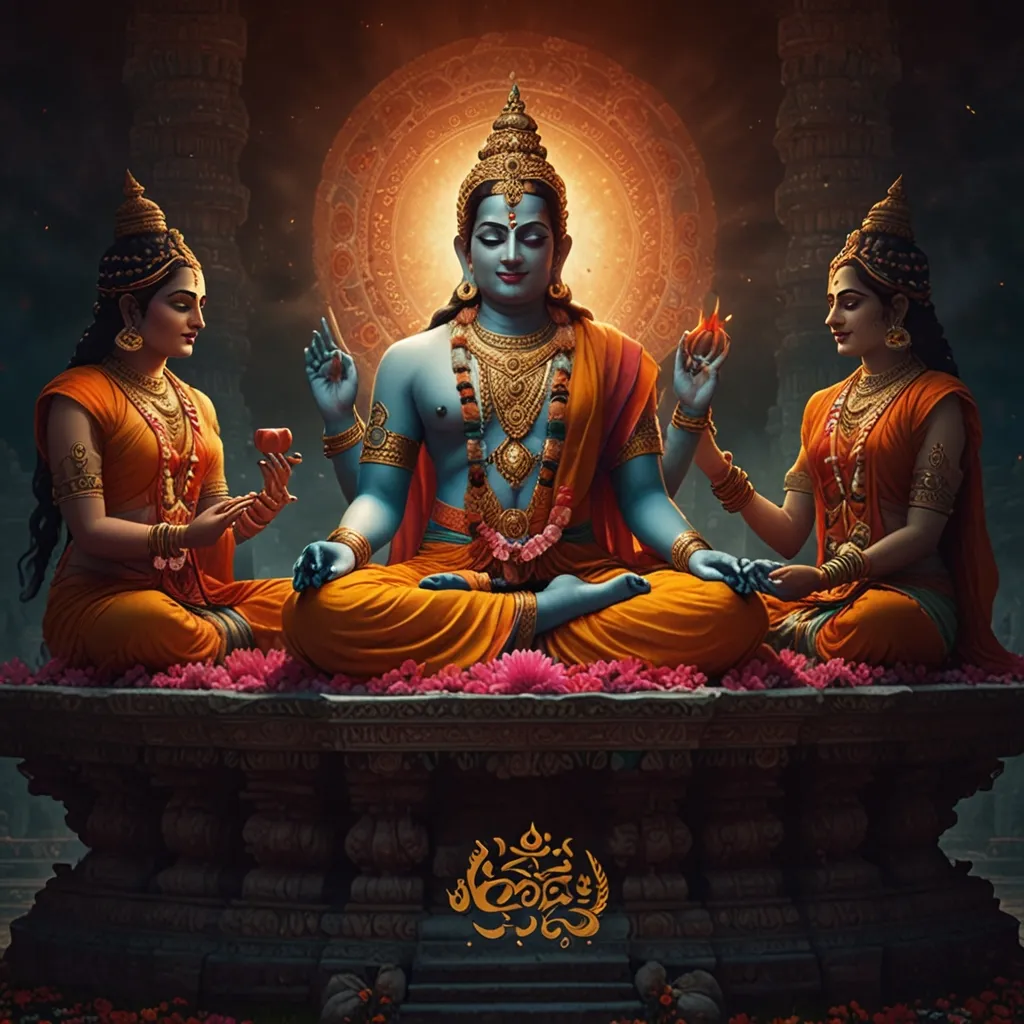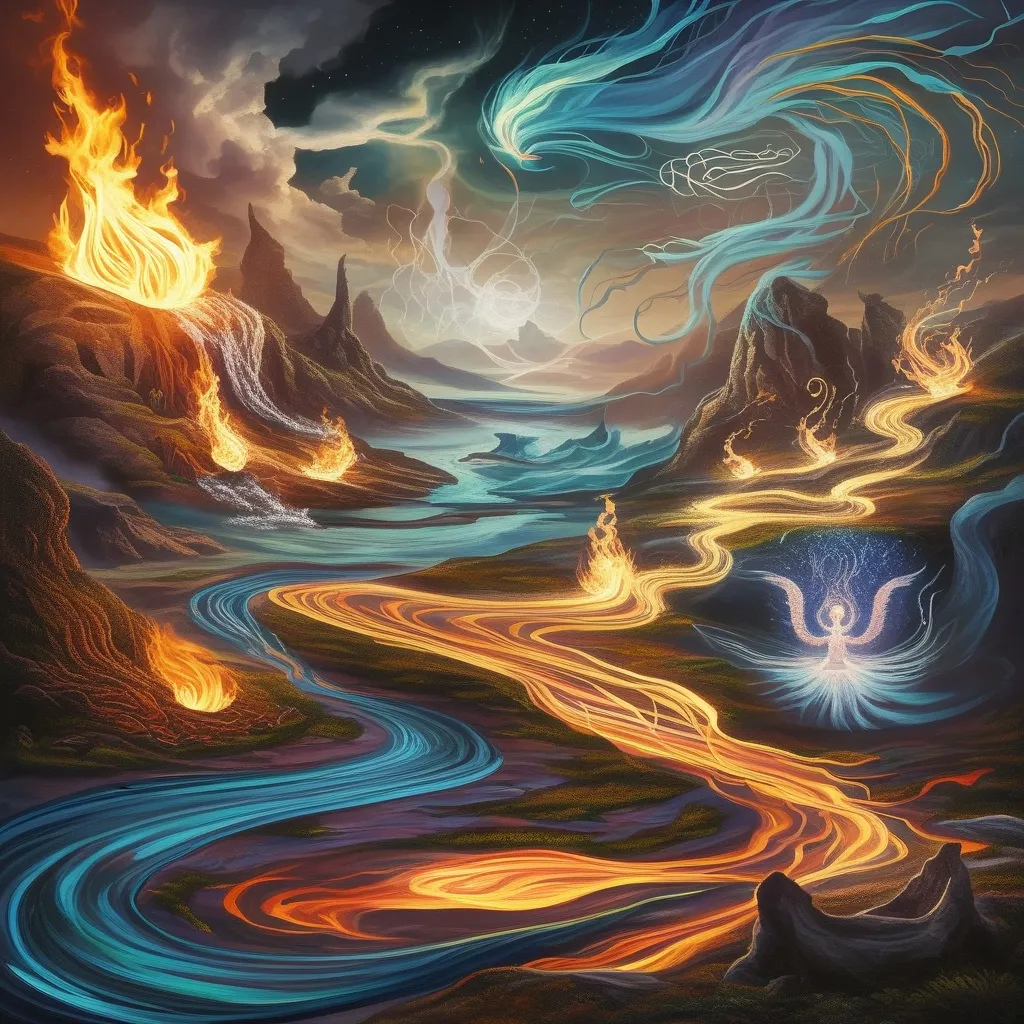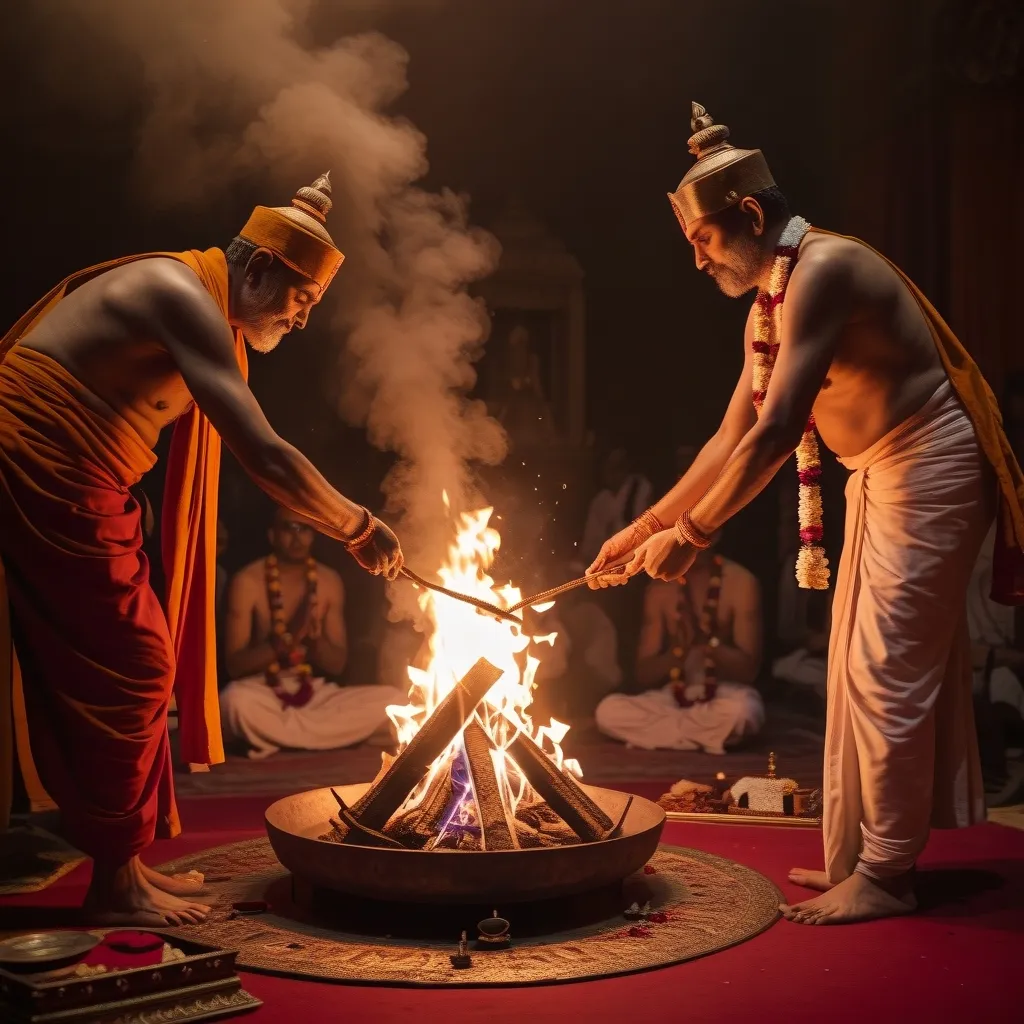Hindu scriptures are filled with fascinating tales and lessons, and one gem in this treasure trove is the Yajur Veda. It’s like a guidebook for rituals, and it’s deeply connected with the rhythm of the universe. A major highlight of the Yajur Veda is the invocation of Varuna, the god of the sky and oceans, who also stands as a moral compass for humanity. Varuna isn’t your average deity; his story and significance shine through, embodying the essence of justice and cosmic balance.
Imagine Varuna as this powerful cosmic overseer. He keeps an eye on everything and everyone, maintaining the universal order, also known as Ṛta. Mess up without remorse, and you’ll face his wrath; show genuine remorse, and forgiveness is on the table. This balance of justice and mercy makes Varuna more than just an ancient god; it personifies the critical values of accountability and moral integrity that are as relevant today as they were back then.
The hymns sung in Varuna’s honor in the Yajur Veda are like intricate poetry, full of rich imagery that brings the god’s omnipresence to life. Picture Varuna always watching, his gaze penetrating the deepest secrets and the quietest actions. Whether a deed is done in the open or in the shadows, nothing escapes his notice. His presence stretches from the earth to the vast skies, and even right down to a single droplet of water.
And speaking of water, Varuna’s connection to it runs deep. Oceans, rivers, raindrops—all forms of water are his domain. Water symbolizes both life and purification, marking Varuna as a vital force in maintaining nature’s balance. The rituals detailed in the Yajur Veda often call upon Varuna to bless the offerings and protect the community, emphasizing the importance of keeping the cosmic order intact.
Truth and honesty are big deals when it comes to Varuna. The hymns warn against lying and deceit, suggesting those who veer away from truth will find themselves entangled in Varuna’s unyielding cords. Conversely, honesty brings freedom. Repeating this theme in various hymns underscores the importance of sticking to the truth and maintaining moral integrity.
Varuna’s role isn’t limited to just handing out moral judgment. He’s also a key player in ensuring cosmic order alongside Mitra, another Vedic god. Together, they symbolize a balance between justice and camaraderie. With his dominion over the sky and oceans, Varuna is a universal figure who oversees the natural world.
In many rituals, Varuna is invoked alongside other deities to bring about community success and prosperity. The Yajur Veda lays out detailed steps for these rituals, including prayers and offerings dedicated to Varuna, aiming to uphold the cosmic order and bring divine blessings.
But it’s not all about rituals. The chanting and hymns invoke deep philosophical thoughts about the universe as well. The Nasadiya Sukta, for instance, although not dedicated exclusively to Varuna, delves into questions about the origins of the universe and the ultimate reality. This shows the Vedic sages didn’t just perform rituals; they pondered deeply about existence itself.
Varuna’s influence didn’t fade away with the Vedic period. He’s a significant figure in later Hindu texts and traditions. Take the epic Ramayana, for example. When Rama needs to cross the ocean to rescue Sita, Varuna comes into the picture. The interaction may involve other gods too, but it highlights Varuna’s continued importance in Hindu mythology.
The poetic nature of the Yajur Veda, especially in the hymns dedicated to Varuna, is pretty impressive. The language is layered with metaphors and symbols, making the hymns not just poetic but also deeply meaningful. Comparing Varuna to the loom of the universe, for instance, adds a whole new depth to the text.
In essence, invoking Varuna in the Yajur Veda is more than a religious ritual; it’s a celebration of Vedic thought encompassing cosmic order, morality, and the natural world. As a guardian of justice and embodiment of universal balance, Varuna’s legacy in the hymns and rituals continues to resonate, cementing his place in the tapestry of Hindu scripture.






